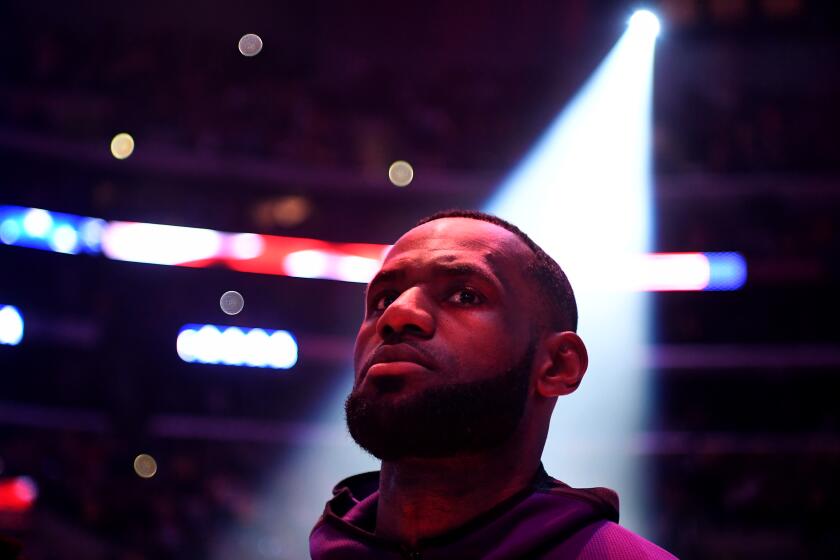PGA’s drug plan includes 1-year ban
- Share via
Golfers who test positive for banned substances under the PGA Tour’s new anti-doping program in 2008 may be ineligible to play for up to one year as a result of their first violation, according to guidelines made public Tuesday.
The Tour released details about its drug-testing plan in a seven-page letter from Commissioner Tim Finchem to the members of the PGA Tour, which also includes players competing on the seniors’ Champions Tour and the Nationwide Tour.
Testing will begin no later than July on the PGA Tour, in late-2008 on the Nationwide Tour and in mid-2009 on the Champions Tour.
The PGA Tour’s testing protocol, outlined for the first time, calls for testing at any time, including testing at tournament sites and on practice or pro-am days as well as during the competitive rounds of tournament play.
A second violation could lead to a five-year suspension of playing privileges. The penalty for multiple violations gives the PGA Tour the authority to impose a lifetime ban. Fines of up to $500,000 are also part of the penalty phase.
Ty Votaw, the PGA Tour’s executive vice president for communications, said the penalties were meant to serve as a deterrent. “In this sport, if you are labeled a cheater, if your career is going to be on hold for a year, we want to deter,” he said. “And it’s not just from an economic perspective, but also from a reputation perspective.”
The extent of the anti-doping program is the result of a meeting of the PGA Tour’s policy board, which approved the measure after discussions Monday at the tour’s headquarters in Ponte Vedra Beach, Fla.
“The policy board’s objective is always to provide the best possible experience . . . for our membership, and to present our sport in the best possible manner,” said Finchem in the letter to the PGA Tour membership.
An anti-doping program had been in the works for months and follows a similar plan outlined by the LPGA to be put into effect next year.
It was announced in September that the PGA Tour and other members of the World Golf Foundation -- a group that includes other pro golf tours, the USGA, PGA of America and the Royal & Ancient, plus the Masters tournament -- put together a list of prohibited substances.
That list includes anabolic agents such as steroids, hormones and related substances such as human growth hormone, testosterone and EPO, agents with anti-estrogenic activity, diuretics and other masking agents, stimulants such as Ritalin, narcotics and cannabinoids.
Also included on the list of banned substances are beta blockers and blood doping, and tampering with a sample is viewed as a violation.
As part of the PGA Tour’s anti-doping program, players may apply for an exemption to use a banned substance if it is substantiated that there is a medical need.
There is no minimum or maximum number of times that a player may be tested in a year, under the Tour’s testing protocol. The testing process will be handled by the National Center for Drug Free Sport, which will also help give information to the players who have questions about the program.
Players will have an opportunity to appeal any sanction at a hearing before Finchem or his designated appointee. The Tour will disclose any player who fails a test and receives a sanction, and also report the penalty.
The policy board also approved a date change for the 2008 Tour Championship, moving it back two weeks so it falls after the Ryder Cup. The $35-million Fed Ex Cup bonus poll will no longer be 100% deferred. The winner’s share of $10 million will include $9 million in cash.
More to Read
Go beyond the scoreboard
Get the latest on L.A.'s teams in the daily Sports Report newsletter.
You may occasionally receive promotional content from the Los Angeles Times.










